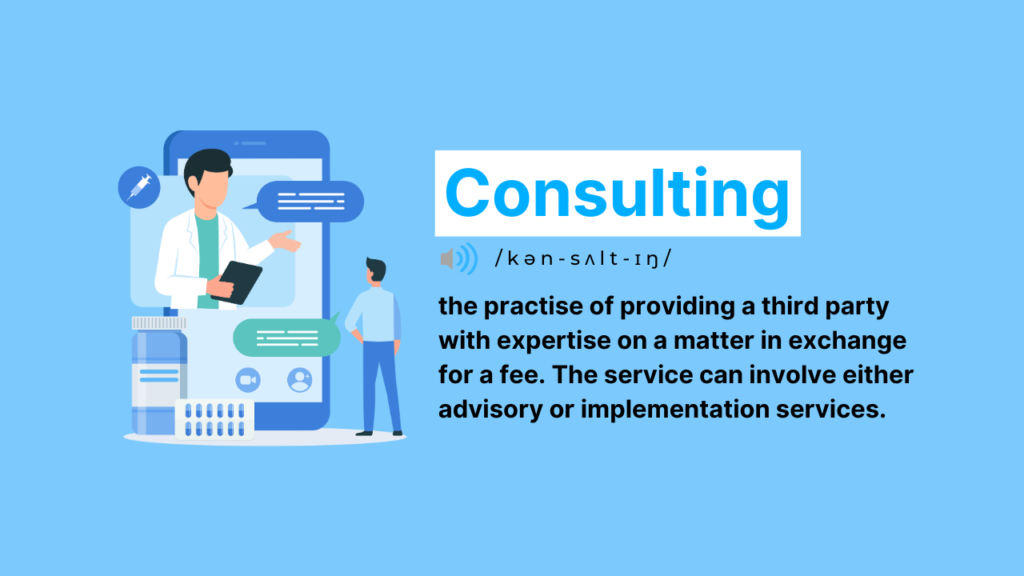
Do you love solving complex problems, working with global clients, and working in a team of very bright individuals? Well if that’s the case then that means consultancy might be the right career for you!
The industry is, however, highly competitive and demands individuals with strong analytical, problem-solving, and communication skills. But once in the industry, the rewards can be lucrative, and above all, will provide a great learning opportunity which makes it a very popular career choice for many graduates.
However, the recruitment process for consulting firms can be rigorous and challenging. That’s why it’s crucial to understand the stages of consulting recruitment and be well-prepared for each step. I experienced it myself during my recruitment journey and made many mistakes but experienced many more learning opportunities along the way.
So today, you’ll learn all about the consulting recruitment process and get all the valuable tips and tricks that I wish I had when starting out!
The Stages of Consulting Application
The consulting recruitment process typically consists of several stages, including:
- Online Application
- Aptitude Tests
- First-round Interview (then sometimes a second or third)
- Assessment Center (Case Study / Group Exercise)
- (sometimes) Final Round Interview
Now, let’s break down each stage and understand what to expect.
1. Online Application
The first step in the recruitment process is to submit an online application through the company’s website or a job portal. This stage showcases your skills, experience, and interest in the consulting industry.
Make sure you tailor your CV and cover letter to highlight relevant experiences, skills, and achievements that align with the firm’s values and requirements. You can also mention any relevant projects or internships you’ve done in the past to demonstrate your interest in consulting. It is essential to proofread your application thoroughly and ensure it is error-free.
Pro Tip: Research the company and its values before submitting your application, as this will help you tailor your CV and cover letter accordingly.
2. Aptitude Tests
If your application is successful, you’ll be invited to take an online aptitude test. Most consulting firms use numerical, verbal, and logical reasoning tests to assess candidates’ critical thinking and problem-solving abilities. These tests are usually timed, so it’s essential to practice beforehand. You can find a variety of free practice tests online, and it’s recommended to take several before the actual test to familiarise yourself with the format and types of questions. What most often throws people off is the time-constraint so make sure you answer questions accurately but also quickly, and utilise materials to help out here.
Aptitude tests are challenging, but don’t be discouraged if you don’t do well on your first try. 51% of applicants fail these tests so very important to practice before hand. Practice makes perfect, and you will learn how the tests work the more you trial them.
Pro Tip: Make sure to read the instructions and questions carefully before answering. Manage your time effectively to ensure you answer all the questions within the allotted time and stay focused and calm during the test.
3. First-round Interview
First-round interviews are typically conducted over the phone or video call and last around 30-45 minutes. The interviewers will ask you about your experiences, skills, and motivation for applying to their firm. They will most likely ask you competency questions such as ‘name a time you led a team’ or ‘state your greatest weakness’, so definitely come prepared with all your experiences and draw on them.
It’s crucial to research the company and its culture beforehand to understand what they are looking for in a candidate. The interviewer will want to see how much you actually know about the company and how much research you have actually done / how keen you actually are to work there, or whether you just ‘mass-applied’.
Pro Tip: Practice answering common interview questions with a friend or family member beforehand to gain confidence and perfect your responses. Have a list of all of your work experiences listed next to your laptop and if you struggle on a question, quickly look down and see what experience you could link the interviewers question to.
4. Assessment Centre (Case Study and Group Exercise)
Congratulations, you made it to the assessment centre! This stage usually takes place at the company’s office, and you’ll be assessed in a group of usually 6-15 candidates. The assessment centre differs depending on the firm but is usually for half or the whole day and may include:
- A competency and personality interview
- A market sizing interview e.g. what is the size of the French sneaker market (see here for market sizing question help)
- A data analysis interview: presented with some graphs and charts and asked questions to be answered on the spot
- Case study: presented with a client and asked various questions about them such as a SWOT analysis and strengths and weaknesses. Also most likely asked to present back to the interviewer after a given amount of time
- Group exercise: most often given a problem in a group setting and told to solve it. The interviewer here will be looking for how well you can work in a team, particularly, that you do not steal all the attention, but also don’t sit in complete silence
Pro Tip: Listen actively to your group members, share your ideas effectively, and be respectful of others’ opinions during the case study and group exercise. Also, don’t be afraid to take on a leadership role and delegate tasks within the group, but be mindful of taking all of the attention.
5. Final Round Interview
The final round of interviews is sometimes the last stage of the recruitment process, but quite often firms will also stop at the Assessment Centre, and typically takes place at the company’s office. It may consist of several one-on-one interviews with different managers and partners of the firm. The final round of interviews is a last chance for the company to understand if you are the right fit for the role.
Review your CV and cover letter and research the company’s recent projects and achievements to prepare for the final round. You may also be asked to solve case studies or answer behavioral questions, so practice beforehand. If you’ve made it to the final round, you are likely a strong candidate for the position. It shows that the company is interested in you and considers you a potential candidate for their team. Be yourself, stay confident, and show your passion for the consulting industry.
Pro Tip: Apart from showcasing your skills and experiences, make sure you have questions to ask the interviewers about the company and the role. This demonstrates your interest and enthusiasm for the firm.
Conclusion
The recruitment process for consulting firms can be rigorous and lengthy, but it’s all worth it in the end. It’s essential to showcase your skills, experiences, and passion for the industry throughout the process. Be prepared, stay confident, and don’t be afraid to ask questions. Regardless of the outcome, every step of the process is a learning opportunity and will help you improve for future applications.
Frequently Asked Questions (FAQs)
1. How long does the entire recruitment process take at consulting firms?
The recruitment process can vary depending on the company and the number of applicants. On average, it can take 1-3 months from application to offer for most consulting firms and most firms will open applications in September.
2. Can I reapply if I don’t make it through the process?
Yes, most firms allow candidates to reapply after a certain period, usually 12 to 18 months. It’s recommended to use this time to gain additional experience and skills such as applying to internships or university society roles.
3. What are the key qualities consulting firms look for in candidates?
Consulting firms generally look for candidates with strong analytical and problem-solving skills, excellent communication abilities, leadership potential, and the ability to work well in teams, are among the top.
4. Is it important to have a specific degree or background?
While consulting firms do appreciate candidates with degrees in business or related fields, many also value diversity in academic backgrounds and are open to candidates from various fields who demonstrate the necessary skills and qualities.
5. How should I prepare for the case study interviews?
Preparation for case study interviews should include practicing with various case studies, understanding different industries and business problems, and refining your analytical and presentation skills. Resources are available online, including practice cases and prep books.
6. What is the best way to prepare for aptitude tests?
Practicing with online samples of numerical, verbal, and logical reasoning tests is the best way to prepare. Focus on improving your speed and accuracy and familiarise yourself with the test format.
7. How can I stand out during the group exercises at the assessment centre?
To stand out, actively participate, demonstrate effective communication and leadership skills, exhibit a collaborative attitude, and show how you can contribute to solving the group’s task. Being respectful of others’ ideas and offering constructive feedback can also make a positive impression. Remember to stay calm and focused throughout the exercise.






